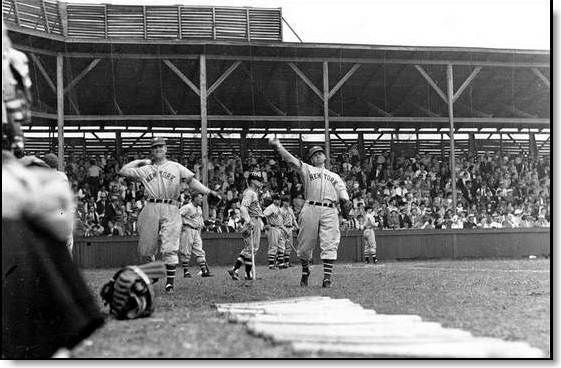It's at this point that most people would say: gee you live in Colorado, so you should root for the Rockies.
The problem is that I didn't grow up with them, and I just got interested in baseball this summer. It's hard to jump on with the home town boys when they are so new, don't seem to really care about winning, and whose mascot resembles an annoying TV dinosaur. (Sorry Dinger, but you know it's true.)
I will say the most convinced argument for picking the home team was made by a friend of mine. Here it goes:
Since
my wife and I are expecting our first child, it's important not to put
him in the position of being the kid who likes some odd, out of town
team. Further, as you'll get the chance to go to more games if you pick a
the home team, it'll be a great bonding experience. And someday, even
if it's 50 years from now, the Rockies may return to the World Series,
and we will get to enjoy that glory moment as long suffering fans.
I wasn't convinced.
After
a lot of thought and consideration, I came up with the following criteria for selecting my team, based on my own preferences.
1.
History. The team had to be a long standing team with some history. The
Rockies were too new of a team. I enjoy reading history generally so
that was an important point for my team.
2. Geography.
I know I rejected geographic destiny as the method of selecting a team,
but it also doesn't make sense to choose a team that is in a place I'd
hate to visit or too hard to get to. (Sorry Tokyo Carp)
3. Their fans.
Lets face it, the fans of some teams can be downright obnoxious. I
wanted a team whose fans I could see myself hanging out with.
Ultimately, I decided on three teams and a
wild card as finalists.
1. San Francisco Giants. An old team
that made the big migration west.
2. Chicago Cubs, another old
team with history.
3. Seattle Mariners, which isn't that old of a team,
but certainly is older than the Rockies. Plus they have the advantage
of being in Seattle, a great city to visit. Plus my sister lives there.
4. The wild card is the St. Louis Cardinals. I'm not a big fan
of the city, but what a great team with great history.
After
much consideration, I've decided that the only way to decide is to go
to a home game in each of their stadiums. I realize this may be a bit
expensive, travel wise, and may take a few years to accomplish. I don't
see baseball going away any time soon.




